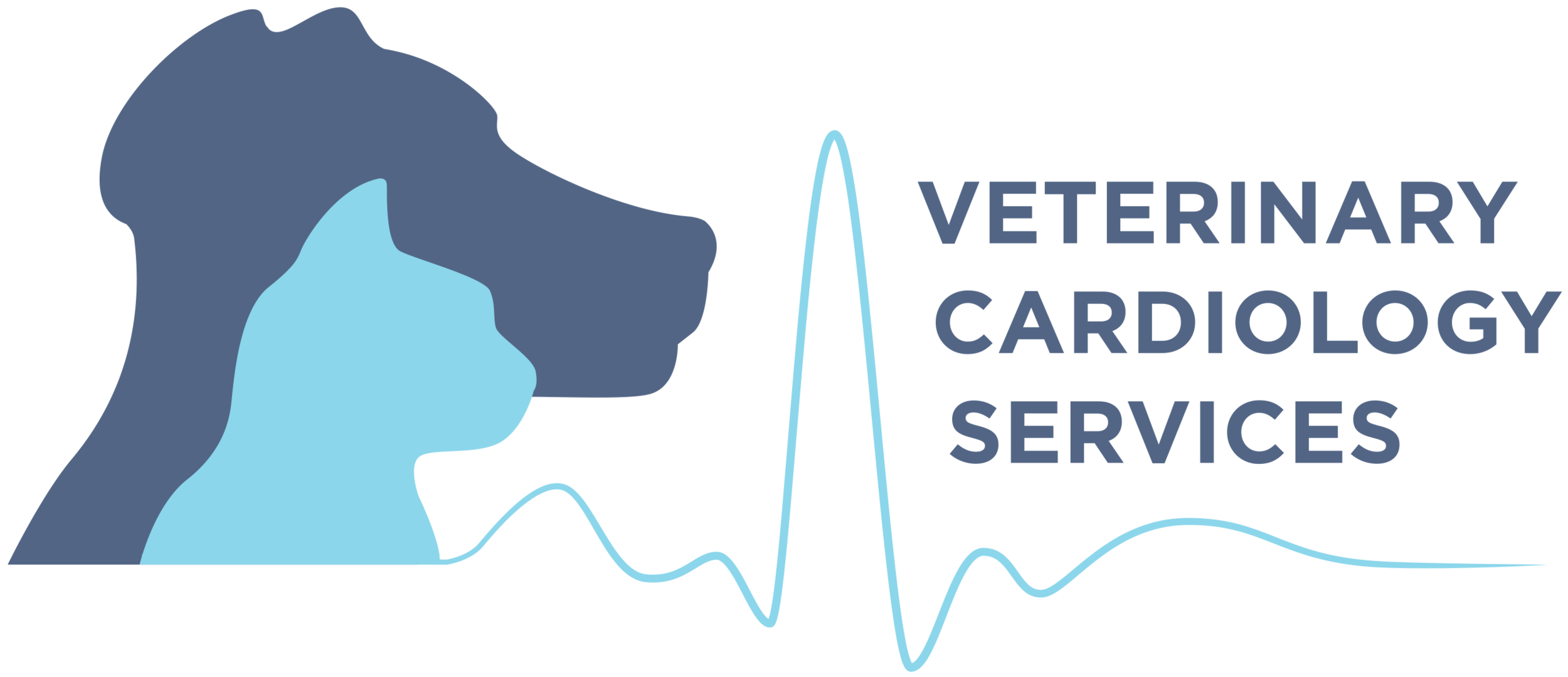Discovering the Vital Providers Used by a Vet Cardiologist: Understanding Ultrasound and CT Check Methods
Vet cardiologists play a crucial role in the health of family pets by identifying and treating various heart disease. They utilize innovative imaging techniques, such as cardiac ultrasound and CT scans, to supply exact analyses. Each method has its distinct advantages and applications. Understanding these techniques is vital for pet proprietors seeking the very best look after their companions. What aspects should pet dog owners take into consideration when picking in between these diagnostic tools?

The Function of Vet Cardiologists in Animal Health Care
Vet cardiologists play an essential function in the healthcare of family pets, focusing especially on identifying and dealing with heart-related conditions. They possess specialized training that permits them to interpret complex diagnostic tests and identify different cardio concerns. These experts utilize sophisticated techniques, such as echocardiography and electrocardiography, to examine heart feature and structure accurately.Veterinary cardiologists additionally develop tailored treatment strategies that may consist of medicines, lifestyle modifications, and, in many cases, medical interventions. Their proficiency expands to educating pet proprietors concerning heart wellness, stressing the significance of regular examinations and very early detection of prospective troubles. Cooperation with basic vets is important, as it ensures complete take care of animals with thought cardiac issues. By providing specialized services, vet cardiologists substantially boost the lifestyle for animals and provide assurance for their owners, strengthening the relevance of heart health in general pet wellness.
Typical Heart Issues in Animals
Usual heart issues in pets can significantly affect their health and lifestyle. Heart murmurs, various sorts of cardiomyopathy, and genetic heart problems are amongst the most common problems that vets encounter. CT Scans For Animals. Comprehending these problems is necessary for pet dog owners to assure timely medical diagnosis and suitable therapy
Heart Murmurs in Pets
Heart whisperings can be a source of worry for family pet proprietors, they are not always indicative of severe health issues. A heart whispering is an unusual audio produced by rough blood circulation within the heart. In pet dogs, these whisperings can be triggered by numerous elements, consisting of congenital heart issues, valve problems, and even anxiety during exams. Many animals with heart murmurs lead regular lives without considerable health effects. To figure out the underlying reason, vet cardiologists usually employ diagnostic techniques such as echocardiograms and Doppler ultrasounds. Early detection and analysis are essential, as they may aid manage any kind of possible cardiac issues efficiently. Family pet owners are encouraged to consult their vet for a comprehensive assessment if a heart murmur is discovered.
Cardiomyopathy Types Explained
Cardiomyopathy encompasses a group of conditions impacting the heart muscle mass, resulting in compromised cardiac function in pets. The most common types consist of expanded cardiomyopathy (DCM), hypertrophic cardiomyopathy (HCM), and restrictive cardiomyopathy (RCM) DCM primarily affects dogs, creating the heart to deteriorate and expand, which diminishes its capacity to pump blood properly. On the other hand, HCM is much more prevalent in pet cats, defined by the thickening of the heart wall surfaces, usually leading to obstructed blood circulation. RCM, though less common, occurs when the heart muscular tissue ends up being rigid, restricting its capability to fill with blood. Each kind offers special challenges in medical diagnosis and treatment, demanding specialized veterinary cardiological evaluation to ensure peak management and treatment for influenced pets.
Hereditary Heart Flaws
Genetic heart problems stand for a considerable group of cardiac concerns in animals, distinctive from acquired conditions such as cardiomyopathy - CT Scans For Dogs. These defects are architectural irregularities existing at birth, impacting the heart's regular function. Typical kinds include patent ductus arteriosus, ventricular septal issues, and pulmonic stenosis. Signs might vary extensively, ranging from moderate to extreme, and can include exercise intolerance, coughing, and trouble breathing. Early diagnosis with sophisticated imaging strategies like ultrasound is vital for reliable monitoring. Veterinary cardiologists play an essential role in determining these problems and advising appropriate treatment choices, which might consist of clinical management or surgical intervention. Acknowledging genetic heart defects enables much better end results and enhanced lifestyle for impacted family pets
Recognizing Heart Ultrasound: Just How It Works
A significant number of veterinary methods now use cardiac ultrasound as a vital analysis device for assessing heart health and wellness in animals. This non-invasive method utilizes high-frequency acoustic waves to produce pictures of the heart's structure and function. During the procedure, a vet technician applies a gel to the pet's upper body and makes use of a transducer to produce ultrasound waves. These waves bounce off the heart and surrounding frameworks, creating real-time photos on a monitor.Veterinarians can assess various facets of heart wellness, consisting of chamber size, wall surface activity, and shutoff function. Additionally, cardiac ultrasound permits the discovery of irregularities such as fluid accumulation and genetic heart issues. This strategy is vital for detecting problems that might not show up through typical radiographs. By giving thorough info about the heart's anatomy and efficiency, cardiac ultrasound aids in creating reliable treatment prepare for pets dealing with heart problem.
The Value of CT Scans in Diagnosing Heart Issues
Just how do CT scans enhance the medical diagnosis of heart disease in veterinary medicine? CT scans supply thorough cross-sectional photos of the heart and bordering structures, permitting vets to visualize complicated anatomical relationships. This imaging strategy is particularly beneficial in determining congenital heart flaws, cardiac lumps, and abnormalities in capillary. By utilizing sophisticated imaging algorithms, CT scans can examine heart additional info chamber dimensions and function, supplying an extensive view that might be difficult to accomplish with traditional methods.Additionally, CT angiography can imagine blood circulation and identify areas of constriction or obstruction, which is crucial for planning prospective interventions. The speed and accuracy of CT scans also assist in fast diagnoses, essential in emergency circumstances. Inevitably, the unification of CT scans into vet cardiology greatly enhances the accuracy of medical diagnoses, making it possible for targeted treatment plans and enhancing person outcomes for animals experiencing from heart disease.
Comparing Ultrasound and CT Scan Methods
While both ultrasound and CT scans are very useful tools in veterinary cardiology, they use distinctive benefits and constraints that affect their use in diagnosing heart disease. Ultrasound, or echocardiography, supplies real-time imaging of the heart's framework and feature, permitting vets to assess heart chambers, valves, and blood flow. It is particularly effective for examining conditions like heart disease and cardiomyopathy. Nonetheless, ultrasound may be limited in imagining specific anatomical structures because of individual size or obesity.In comparison, CT checks deal detailed cross-sectional images of the heart and surrounding cells, making them ideal for identifying structural irregularities, lumps, or vascular concerns. CT scans supply extensive understandings, they need sedation and may entail radiation exposure. Ultimately, the option between ultrasound and CT checks depends upon the specific professional situation, the client's problem, and the details required for a precise medical diagnosis.
Treatment Alternatives Offered Through Vet Cardiology
Veterinary cardiology supplies a variety of treatment choices tailored to attend to various heart problems in animals. Therapy strategies commonly begin with way of living modifications, consisting of diet modifications and workout adjustments, intended at improving total heart health. Medicines play a vital function, with cardiologists suggesting drugs such as diuretics, beta-blockers, and ACE preventions to take care of signs and boost cardiac function.In extra severe situations, interventional treatments, such as balloon valvuloplasty or stent positioning, might be required to relieve blockages or boost blood flow. For specific genetic heart defects, surgical choices might be explored to remedy architectural concerns. Additionally, continuous tracking and follow-up treatment are crucial components of a complete therapy strategy, enabling timely modifications based check this site out upon the pet dog's feedback to therapy. Overall, veterinary cardiology concentrates on offering efficient, personalized treatment to enhance the health and wellness and health of pet people with heart disease.
Just how to Prepare Your Pet for a Cardiac Evaluation
Preparing a pet for a cardiac assessment is important to ensure precise results and a smooth process. Owners need to initially set up the visit with the veterinary cardiologist and talk about any specific requirements or concerns. It is advisable to withhold food for at the very least 12 hours before the examination, as this assists enhance imaging quality throughout treatments like ultrasound or CT scans.Additionally, preserving a calm environment on the day of the consultation can help in reducing the animal's anxiety. It is beneficial to bring along any pertinent medical documents, consisting of previous tests and medications (CT Scans For Animals). Owners should likewise make sure that their pet is comfy and leashed throughout transport to the facility. Ultimately, familiarizing themselves with the analysis process can assist and relieve concerns in asking informed concerns throughout the examination. By complying with these actions, proprietors can add greatly to the efficiency of the heart assessment
Regularly Asked Inquiries
Just how Lengthy Does a Heart Ultrasound or CT Check Take?
The duration of a heart ultrasound generally varies from 30 to 60 mins, while a CT scan may take about 15 to half an hour. Aspects such as the patient's condition can affect these time price quotes.

Exist Any Kind Of Threats Related To These Diagnostic Procedures?

Can I Keep With My Pet Dog Throughout the Procedure?
The veterinary facility's plan normally determines whether animal owners can continue to be throughout Recommended Site procedures. While some clinics encourage proprietor existence for comfort, others might call for splitting up to ensure safety and ideal problems for diagnostic imaging.
Just how much Do These Analysis Tests Generally Price?
The prices of diagnostic examinations, such as ultrasound and CT scans, usually vary based upon place and center. Normally, prices vary from a few hundred to over a thousand bucks, showing the intricacy and innovation involved.
What Is the Healing Process After a Heart Evaluation?
The recuperation process after a heart assessment entails keeping track of the pet for any type of prompt reactions, making certain comfort, and restricting physical activity. Vets typically supply post-evaluation directions to guide family pet proprietors during this crucial recovery duration. Heart whisperings, various types of cardiomyopathy, and genetic heart problems are amongst the most prevalent conditions that vets run into. A heart murmur is an irregular audio produced by unstable blood circulation within the heart. Cardiomyopathy encompasses a group of illness influencing the heart muscle, leading to compromised cardiac feature in pet dogs. Congenital heart problems represent a substantial group of cardiac issues in animals, unique from gotten problems such as cardiomyopathy. Ultrasound, or echocardiography, provides real-time imaging of the heart's structure and function, allowing veterinarians to examine heart chambers, shutoffs, and blood circulation.